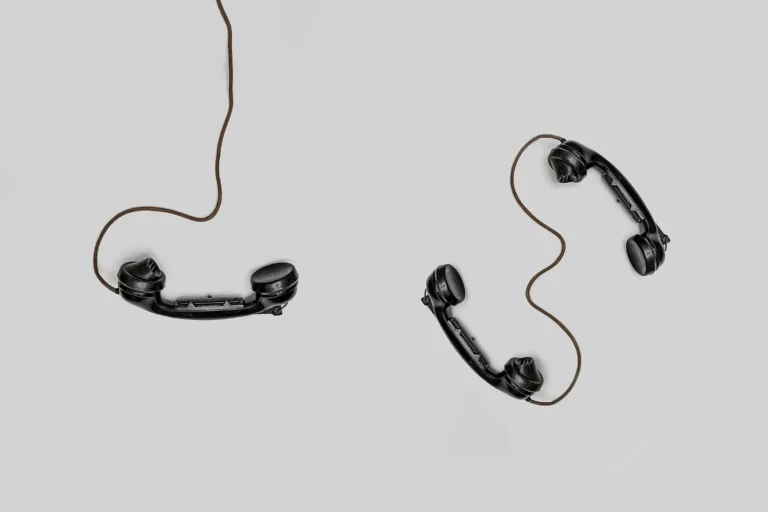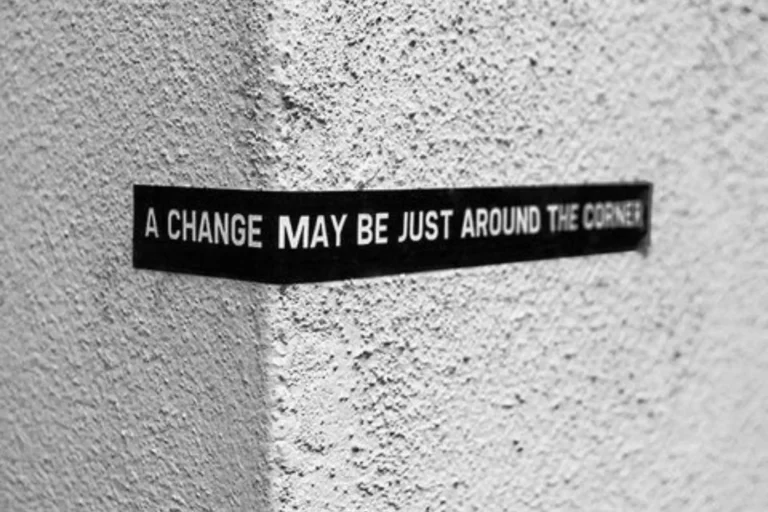From Retail Floor to Office Door: Navigating Your Career Shift
You’ve nailed the art of handling peak-hour chaos with grace, charmed your way through stocktake season, and survived a decade’s worth of small talk with strangers. But now, the fluorescent lighting, weekend shifts and standing-all-day life no longer feel like a match. You’re not just chasing a career change—you’re ready to transition from retail to an office job.
If this sounds like you, take a deep breath—you’re not starting from scratch. You’re starting from experience.
We speak to countless jobseekers at Talent Solution Partners who’ve thrived on the frontlines—whether in retail stores, bustling cafés, or luxury hotels—and are now ready for boardrooms, strategy meetings, and a Monday–Friday routine that doesn’t involve folding t-shirts or juggling triple-shot oat lattes.

1. Recognise What You Already Bring to the Table
We’ll start with some good news: You’re more qualified than you think.
Retail and hospitality roles equip you with a uniquely human skill set—something many corporate employees are still learning. Whether you’ve been a store manager or a barista, you’ve likely mastered:
- People skills: Handling complaints without losing your cool? Tick.
- Sales acumen: Persuading customers and hitting targets? Done.
- Organisation: Coordinating rosters, inventory, suppliers? You get it.
- Time management: Multitasking at Olympic levels under pressure.
These are transferable skills from retail to corporate roles that employers crave—especially in fields like customer experience, admin, operations, HR, and marketing. The trick is learning how to position them.
2. Translate Your Experience (Without the Jargon)
Your CV doesn’t need to scream “I used to work weekends.” Instead, it should showcase your impact and potential through a corporate lens.
Let’s say you were a store assistant at a major retailer. Instead of writing:
“Assisted customers and operated tills.”
Say:
“Delivered tailored in-store customer experiences, contributing to a 12% increase in customer retention over 6 months.”
Or if you led a hospitality team:
“Trained and led a front-of-house team of 10+, implementing new SOPs that improved table turnover efficiency by 20%.”
Quantify your value wherever you can. For those making a career change from retail, these tweaks make your experience not only relevant—but compelling.
3. Upskill (Without Going Back to Uni)
No, you don’t need an MBA to land an office job. But a little self-education goes a long way. The good news? You can learn a ton without spending thousands or quitting your day job.
Online courses worth exploring:
- Project Management (Google Project Management, or PRINCE2 certs)
- CRM & Admin (Salesforce, HubSpot, Microsoft Office Suite)
- Marketing Basics (Meta Blueprint, Google Digital Garage)
- Data & Analysis (Excel, Power BI, Tableau basics)
This also helps you tap into office jobs for retail workers that demand a bit of digital literacy or operational awareness.
Bonus tip: List any online certificates on your LinkedIn profile to increase discoverability.
4. Get Savvy with LinkedIn
If your LinkedIn profile still says “Retail Assistant – 2019–Present,” it’s time for a refresh.
Treat LinkedIn like your personal hype page. It should clearly state your career ambitions, not just your current job. Use the About section to say:
“Retail team leader pivoting to operations and logistics. Passionate about streamlining systems, empowering people, and delivering seamless customer experiences.”
Engage in industry content, follow target companies, and connect with people in roles you want. You’re not just building a profile—you’re building a network.
This is key for anyone looking to move from retail or hospo to office jobs, especially if you’re lacking direct connections in the corporate world.
5. Explore Entry-Level Office Roles Designed for You
If you’re thinking all corporate roles require ten years of experience and fluent Excel wizardry—think again. There’s a whole ecosystem of entry- to mid-level roles perfect for candidates with your background.
Here are a few examples:
- Customer Service Representative: Leverage your face-to-face service skills in a phone/email setting.
- Office Administrator or Receptionist: Organised, personable, and always on time? You’re a natural.
- Team Assistant or EA: Supporting execs and departments with scheduling, documentation, and logistics.
- HR or Recruitment Coordinator: If you’re a people person who likes process, this one’s for you.
- Sales Support or Junior Account Manager: Use your client-handling skills in a B2B environment.
Many of these fall under the broader umbrella of corporate jobs for hospitality workers and offer real career progression.
6. Know Where to Look (and How to Be Found)
Sure, you can scroll through SEEK and Indeed like everyone else. But smarter jobseekers get strategic.
Here’s how:
Tap into internal mobility. If you work at a major retail brand with a head office—think Cotton On, Bunnings, or Mecca—ask about internal applications. Many companies LOVE to promote from within.
Look for career pivot roles. Use terms like “junior,” “coordinator,” or “support” alongside your areas of interest.
Use filters. Narrow by “entry level” and “training provided” roles.
Work with recruiters (like us at Talent Solution Partners!) who specialise in frontline to corporate career path transitions.
7. Prepare for a Different Pace (and Dress Code)
Making the transition from retail to corporate job doesn’t just change your job title—it shifts your entire work ecosystem.
Here are a few real-world changes to expect:
What to embrace:
- Set schedules: You’ll likely enjoy Monday to Friday hours (hello, brunch plans).
- Email culture: Communication moves from the break room to the inbox.
- Performance reviews: You’ll get feedback based on KPIs, not just customer smiles.
- Autonomy: You’ll often have more freedom to structure your day.
What to prepare for:
Imposter syndrome: Totally normal—push through it. Everyone starts somewhere.
Less adrenaline: Office life is slower-paced than a lunch shift at a CBD café.
More sitting. Your Apple Watch may judge your new sedentary lifestyle.

8. Nail the Interview (Without Overselling or Underselling)
The biggest trap candidates fall into? Either underselling their experience (“I only worked in hospitality…”) or overselling (“I could run your HR team tomorrow”).
Find the balance by aligning your experience with the employer’s pain points.
If they’re hiring for a coordinator role that requires multitasking, say:
“In my current hospitality role, I manage bookings, train new staff, and coordinate suppliers—all during peak service. I’m confident I can apply those skills in a structured office setting.”
Want to shine? Prepare examples using the STAR method (Situation, Task, Action, Result), and come armed with thoughtful questions about company culture and growth pathways.
9. Success Stories: Real Transitions We’ve Seen
At Talent Solution Partners, we’ve helped hundreds of jobseekers transition from retail to corporate job life (and everything in between). The proof is in the people—and their stories speak volumes.
From Assistant Store Manager to Wholesale Coordinator
After five years leading a high-performing retail team, Jasmine knew she was ready to shift gears. She loved working with product and knew the business inside out, but wanted out of weekend rosters and into strategy. With our help, she translated her experience into a compelling resume and landed a wholesale coordinator role at head office for the very same brand. Today, she’s liaising with international buyers and managing allocations like a pro—no headset, no folding required.
From Chef to Area Manager in Hospitality
Marc had spent over a decade working in kitchens—crafting menus, leading teams, running the pass under pressure. But what he really wanted? A bird’s-eye view of the business. With his deep understanding of operations and people leadership, we helped him transition into an Area Manager role overseeing multiple venues. His chef’s eye for detail and operational nous gave him a huge edge—proof that you don’t need to hang up your apron to grow in the industry.
From Venue Manager to Recruiter
Talia thrived in hospitality—she knew how to build a team, drive revenue, and handle a Saturday night crowd with style. But she was craving more structure, more growth, and a new kind of challenge. Enter: recruitment. With strong people skills and a sixth sense for culture fit, she’s now a hospitality recruiter, helping others find their dream roles and applying her insider experience every day.
These aren’t unicorn stories—they’re real people who dared to pivot, partnered with the right support, and landed where they belonged.
10. Final Words: You Belong in the Room
Shifting from frontline to office doesn’t mean giving up who you are. It means building on it.
You’ve earned grit, resilience, and an innate understanding of people—things that can’t be taught in corporate onboarding. The decision to leave hospitality for a 9 to 5 or transition from retail to an office job is bold, strategic, and very possible.
It might take a few months. It might take a few applications. But with the right mindset, tailored strategy, and support, you’ll be the one in a lanyard and tailored blazer before you know it.
And if you need help? You know where to find us.
Connect with Talent Solution Partners on LinkedIn or read more from the TSP Blog







